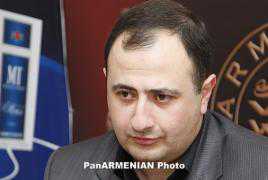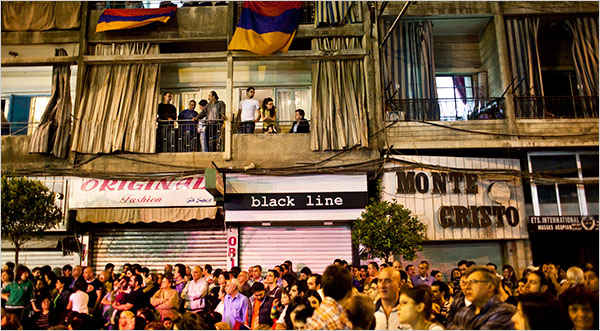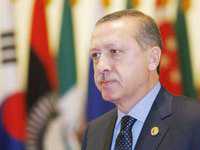Turkey’s Armenian community is facing difficulties in electing an administrative board for the Üç Horan Armenian Church Foundation, with some claiming society officials are guilty of discrimination.
“Armenians from [the Central Anatolian province of] Sivas are dominant in the administrative board, and they do not want Armenians from [the Southeast Anatolian province of Şırnak] and [the Black Sea province of] Sinop to have any influence whatsoever in the community foundations. They call them Kurds. Such discrimination is unacceptable in a 50,000-person community,” Üç Horan Foundation chairman candidate Efrim Bağ told the Hürriyet Daily News & Economic Review.
Sarkis Elbe, a prominent member of the Armenian community in Turkey, said the election process has been “painful,” adding that the elections should be open to all members of the Armenian community in Istanbul to prevent problems in future elections.
Misak Hergel, president of the Istanbul-based Vakıflıköy Armenians Association, also believes that the elections should be open to public. “A general election should be held not only for Beyoğlu but all foundations,” said Hergel. “Many foundations do not have a congregation and the current election process is not fair.”
The Turkish-Armenian community owns 42 foundations, all of them based in Istanbul. Üç Horan has the largest amount of revenue among them.
In May 2009 the foundation applied to the General Directorate of Foundations to elect their administrative board. Some, however, said after the polls that the administrative board had conducted an unlawful election for its own ends. The election was canceled and the issue was taken to court.
The General Directorate of Foundations demanded a new election, which was scheduled for Nov. 21 of this year. However, the same administrative board was found to have unlawfully prepared an election list and the election was postponed again, this time until February.
The Turkish Armenian community in Istanbul wants the board elections to be open to participation by all members of the community. According to the community’s attorneys, there is no legal impediment to that in the Turkish law for foundations.
Bağ further said the patriarch’s word used to be considered a holy order, but the lack of a proper patriarch at the moment has complicated the community’s internal affairs.
“The deputy patriarch invited all the parties to the Patriarchate to discuss the issue, but nobody went. This is openly denying the Patriarchate and its status,” Bağ said.
Turkish Armenian Patriarch Mesrop II has developed frontal dementia, preventing him from fulfilling his duties. Following intervention by the Turkish Interior Ministry, Archbishop Aram Ateşyan was appointed deputy patriarch.
Because the current patriarch is still alive, a new patriarch cannot be elected, according to the canon of the Armenian Apostolic Church.
The Hürriyet Daily News & Economic Review called the foundation board to ask for comment about the claims, but the board refused to answer its questions.
 Turkologist Ruben Melkonyan said that the Armenian community of Turkey faces numerous problems, including education. Around 47 Armenian schools operated in Istanbul during the 1970’s. There are about 16 Armenian Schools in Istanbul today with 3,000 students. In the Armenian School, they do not learn about Armenian history. The Turkish policy is that, teachers should be only teaching Turkish history and language. Melkonyan, visited many of these Armenian schools, and he asked the students why they do not speak Armenian in Armenian schools. The students replied saying that it’s not allowed and many of the teachers don’t speak it, so why should they?. Only 18% of the Armenian community of Istanbul knows the Armenian language and uses it.
Turkologist Ruben Melkonyan said that the Armenian community of Turkey faces numerous problems, including education. Around 47 Armenian schools operated in Istanbul during the 1970’s. There are about 16 Armenian Schools in Istanbul today with 3,000 students. In the Armenian School, they do not learn about Armenian history. The Turkish policy is that, teachers should be only teaching Turkish history and language. Melkonyan, visited many of these Armenian schools, and he asked the students why they do not speak Armenian in Armenian schools. The students replied saying that it’s not allowed and many of the teachers don’t speak it, so why should they?. Only 18% of the Armenian community of Istanbul knows the Armenian language and uses it.

